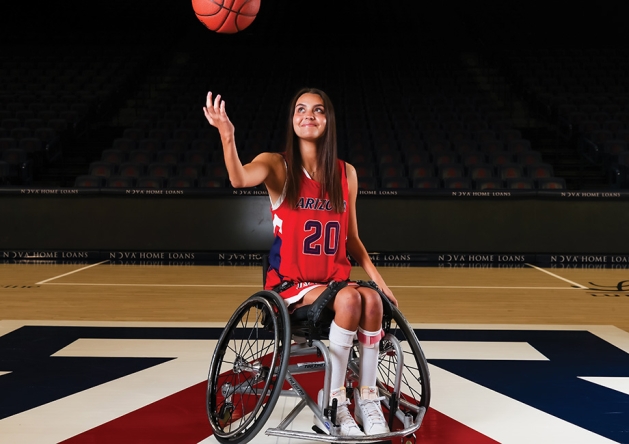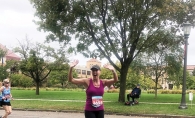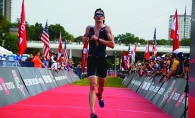
Throughout her high school career, Edina alumna Hayley Nilsen was a standout basketball player. But unlike many of her peers, she didn’t run onto the court each game—she rolled on.
Diagnosed with Charcot-Marie-Tooth Disease, a form of muscular dystrophy, at just 5 years old, Nilsen’s mobility declined over time. In eighth grade she made the life-changing decision to switch from able-bodied basketball to wheelchair basketball.
But this switch hasn’t slowed her down. In fact, she’s continuing her love for the game by playing Division I wheelchair basketball at the University of Arizona this season.
Basketball has always been Nilsen’s favorite sport—partially because of the athletic household in which she grew up. Both of her parents played basketball at Concordia University in St. Paul. Her father, Matt Nilsen, was also an Edina Girls Basketball coach for over 20 years—11 of those years as the head coach. And her older sister went on to play college ball at University of Wisconsin - River Falls, where she’s currently a senior.
For the Nilsens, basketball is a family affair. But making the switch from able-bodied basketball wasn’t easy. Nilsen is not day chair bound (she uses leg braces on a normal basis), so she had to learn the mechanics of maneuvering a wheelchair for the game. It’s a challenge she says was worth it.
“It was shocking at first, but motivation is not a problem for her,” Matt says. “She trains just as hard as anyone else. She just made a shift is all … She is as tough as they come.”
Joining the Minnesota Jr. Rolling Timberwolves her freshman year of high school, Nilsen was able to be a part of a team that would launch a newfound confidence in her, as well as a world of opportunities. “I grew up around basketball, so I just wanted to keep doing it,” she says. “Before I heard of playing wheelchair basketball, I never saw that as a possibility.”
The Jr. Rolling Timberwolves consists of players from across the state, forming junior varsity and varsity teams. They compete against other teams across the nation in monthly tournaments—an opportunity that Nilsen deems as the most valuable experience of it all.
“There are a lot less teams between high school [and college], but honestly that is what I kind of loved about it because everybody kind of knows everybody and you get to make friends from all over the country and see them at tournaments,” she says.
The consistent positivity in the environment deeply impacted Nilsen. She shares how the transition from able-bodied to wheelchair basketball noticeably shifted her attitude toward herself, noting that wheelchair basketball “has made me value all of the relationships I have made and focus on all the stuff I am still able to do even though I cannot be in able-bodied basketball,” she says.
She will continue competing throughout her four years at the University of Arizona, but Nilsen says this is not the last stop in her athletic career. With opportunities to play in U25 leagues and on USA teams, she hopes to eventually compete on the USA Paralympic team. “I am still trying to reach the next level in the best way that I can,” Nilsen says.









